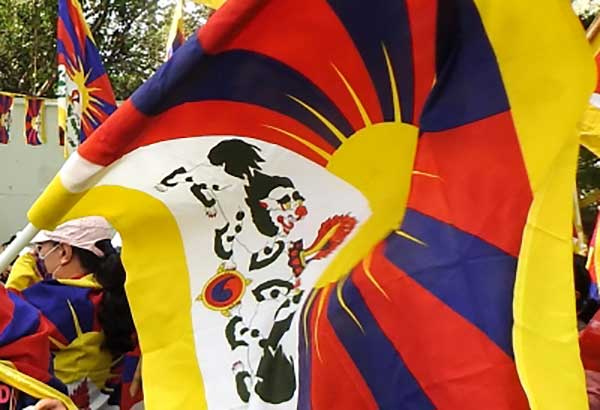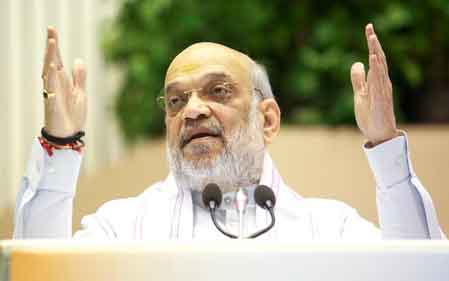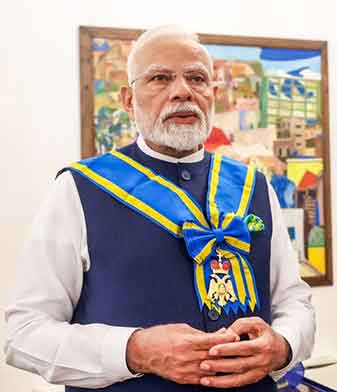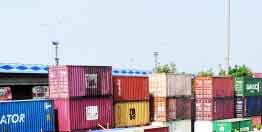Retreating its commitment of non-violence and to pursue the 'middle-way policy' -- the only way to resolve the China-Tibet conflict based on mutual benefit and negotiation -- the Tibetan government-in exile, called the Central Tibetan Administration (CTA), has blamed Beijing for the lack of political will to continue with the dialogue process that has remained deadlocked since 2010.
According to a Vision Paper: Securing Tibet's Future, Tibetans face an existential threat to their culture and identity due to the repressive genocidal policies of China.
"Even though the Kashag (Cabinet) wishes to resume contact with the Chinese government, it depends on whether the Chinese leadership has the political will to resolve the conflict," it says.
"If the Chinese side sincerely proposes dialogue to find a lasting solution to the conflict, we stand ready to respond. Until such a solution is found, we will meticulously examine the situation inside Tibet and point out the wrong policies that need to be stopped or rectified."
The recognition of Tibet as an independent nation, as proven by historians, is a prerequisite for according leverage and value to the 'middle-way policy'.
"Therefore, it is important to accept the fact that Tibet is currently an occupied nation. It is important for all stakeholders to recognise Tibetans not just as mere victims of the PRC but as partners in bringing about positive changes in China," says the Vision Paper launched by the CTA President Penpa Tsering amidst the presence of delegates from major funding organisations like USAID, Tibet Fund and NDI here on Monday.
Explaining the nine rounds of Sino-Tibetan dialogue that took place between 2002 and 2010, it says the Chinese government asserted the precondition of "Tibet as historically a part of China, but we made it clear that the past history should be left to historians and experts to decide and what matters most is the future of the Tibetan people".
Due to the lack of political will on the part of the Chinese leadership, the dialogue process has remained deadlocked since 2010, it says.
In the 1990s, Tibetan spiritual leader the Dalai Lama, who devolved all his political and administrative responsibilities to the democratically-elected leadership in 2011, reached out to the Tibetan people to decide on the future course of the Tibetan movement.
"Short of a referendum, the majority of the public decided to follow His Holinessa� decision, which the Tibetan parliament-in-exile unanimously adopted in 1997. His Holiness subsequently reiterated his commitment to middle-way policy, and the CTA continues to pursue this policy."
On March 31, 1959, the 14th Dalai Lama entered India from Chutangmu, a small Assam Rifles outpost near Tawang in Arunachal Pradesh.
In his biography, the Dalai Lama mentioned that when he first stepped to India after escaping Lhasa he experienced "freedom".
In Mussoorie on April 20, 1959, the spiritual leader met with the Indian Prime Minister and the two talked about rehabilitating the Tibetan refugees.
Favouring international advocacy for recognition of Tibet's historical status to gain appraisal for the 'middle-way policy', the vision paper says an expert testimonial was held on June 23, 2022 in the .S Congress on the historical status of Tibet as an independent state.
"Last year and February this year, a Bill has also been moved in both Houses of the U.S. Congress seeking to recognise Tibet as an unresolved conflict. It underscores the need to counter the PRC's false narrative on the true historical status of Tibet and resolve the Sino-Tibet conflict through dialogue.
"This Bill will help the international community to understand Tibetan history and its status under international law as well as gain more appraisal for the middle-way policy."
During the nine rounds of dialogue, a Memorandum on Genuine Autonomy for the Tibetan people was presented to the Chinese government.
"However, with the closing of the Olympic Games in 2008, the dialogue process ended sans traction due to the Chinese leadership's lack of political will.
"Therefore, creating new momentum and opportunities for dialogue is our top-most priority."
"If we are not able to counter Xi Jinping's current policy, it will lead to the extermination of Tibetan identity from the face of this earth. We are dying a slow death," an official statement quoting CTA President Penpa Tsering said.
According to the CTA, the PRC is making huge investments in internal security and surveillance apparatus.
Tibetans are subjected to multiple layers of surveillance on a regular basis, including the use of artificial intelligence-enabled surveillance: electronic identification, facial recognition, geo-location, DNA profiling, and iris scanning.
Nearly 130,000 Tibetans in exile live in many countries around the world in both compact and scattered communities. About 80,000 are settled in 54 different locations across India, Nepal and Bhutan.
Around 50,000 are scattered across many countries in the West.
With the exception of Tibetans in Tibet, all Tibetans are administered by the CTA from Dharamsala.






Assam Rifles seizes foreign cigarettes worth Rs 5.1 Crores
In a major anti-smuggling operation, the Assam Rifles seized a large consignment of banned foreign cigarettes worth approximately Rs 5.1 crores near Chandrapur area in Agartala, Tripura.
BJP protests outside Bangladesh envoy’s office over attack on Tagore’s home
The Pradesh Bharatiya Janata Party (BJP) on Monday staged a protest demonstration outside the office of the Assistant High Commissioner of Bangladesh in Agartala, condemning the recent vandalism of Rabindranath Tagore’s ancestral home in Bangladesh.
After Agartala, Air India discontinues full-service operations at Imphal; low-cost Air India Express to fly in
After Agartala, Air India has discontinued the operation of its full-service carrier from the Imphal International Airport, but the Tata group owned airline’s low-cost subsidiary Air India Express would continue services from the Manipur capital, the Airport Authority of India (AAI) said on Monday.
India has achieved 'Zero Casualty' target in disaster response: HM Amit Shah
Union Home Minister Amit Shah on Monday said under Prime Minister Narendra Modi, the country has achieved the target of 'Zero Casualty' during disasters in the past 10 years, bringing it close to becoming a global leader in crisis management.
Govt opens bids for 12th round of coal mine auctions
The Nominated Authority of the Coal Ministry on Monday opened the bids for the 12th round of commercial coal blocks’ auction in which as many as 41 bids have been received online as well as in physical form for 11 coal blocks, according to an official statement.
This reflects India's rising stature on global stage: HM Shah on PM Modi getting Cyprus's highest civilian award
Union Home Minister Amit Shah on Monday congratulated Prime Minister Narendra Modi for being honoured with Cyprus's highest civilian award, calling it an acknowledgement of his leadership and India's growing diplomatic standing worldwide.
India’s exports of goods and services rise 2.8 pc to cross $71 billion in May amid global uncertainty
The major drivers of merchandise exports growth in May include electronic goods, chemicals, drugs & pharmaceuticals, marine products and ready-made garments of all textiles.
PM Modi wraps up landmark Cyprus visit, emplanes for Canada to attend G7 Summit
Prime Minister Narendra Modi on Monday wrapped up his landmark two-day visit to Cyprus and left for Canada where he will be attending the 51st G7 Summit in Kananaskis, Alberta, on Tuesday.